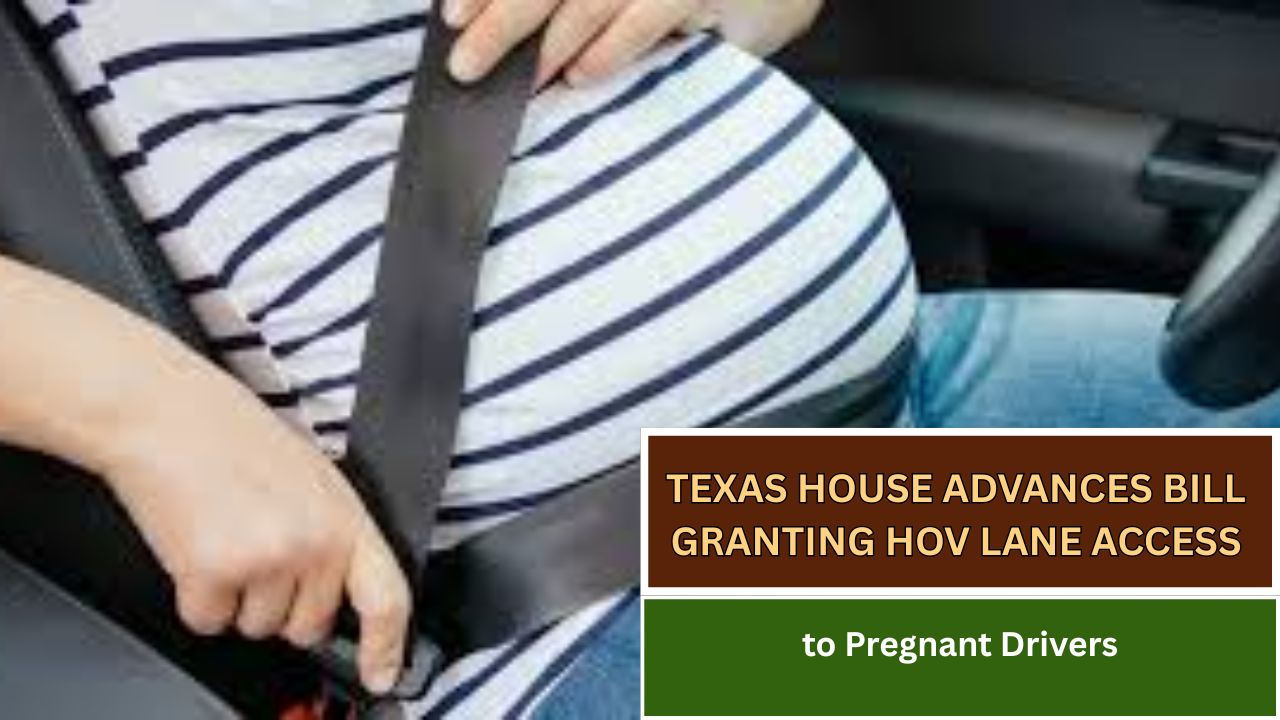Legislation quietly reignites debate over fetal personhood
AUSTIN, Texas — A new bill passed by the Texas House would allow pregnant drivers to legally use high-occupancy vehicle (HOV) lanes, treating an unborn fetus as a second occupant in the vehicle. The proposal is part of a growing trend in Texas law toward recognizing fetal personhood.
House Bill 2462, sponsored by Rep. Jeff Leach, would redefine vehicle occupancy to include an unborn child, effectively allowing pregnant individuals to meet the two-person requirement for HOV lane use.
Exceptions Could Delay Implementation
The bill includes provisions to prevent conflict with federal law. It would not be implemented if found to violate federal regulations or result in the loss of federal funding for the state.
Bill Inspired by High-Profile 2024 Incident
The legislation follows a 2024 case involving Brandy Bottone, a pregnant woman from the Dallas area, who was cited for driving solo in an HOV lane. She told officers that she was not alone in the car—her unborn daughter was with her.
“I pointed to my stomach and said, ‘My baby girl is right here. She is a person,’” Bottone told the Dallas Morning News.
“[The officer] said, ‘Oh, no. It’s got to be two people outside of the body.’”
Bottone challenged the $215 ticket in court. Though the charge was later dismissed, she was cited again months later for driving in another HOV lane. The case drew national attention and renewed conversations around fetal personhood—the legal notion that fetuses have the same rights as individuals.
Fetal Personhood Debate Intensifies
Supporters of fetal personhood argue that unborn children should be recognized as individuals under the law. However, reproductive rights advocates caution that embedding this idea in state law could further criminalize pregnant people and those assisting in abortion access.
Since the overturning of Roe v. Wade, several states have moved to codify fetal personhood. In Alabama, for example, a state Supreme Court ruling in 2023 granted embryos the same legal rights as children, prompting IVF clinics to temporarily halt services. The situation led to the passage of a law protecting IVF providers and patients from liability.
Texas Penal Code Already Reflects Fetal Status
If House Bill 2462 becomes law, it would strengthen Texas’s position on fetal personhood, building upon existing statutes. The Texas Penal Code already defines an individual in murder and assault cases as an “unborn child at every stage of gestation from fertilization until birth.”
This article has been carefully fact-checked by our editorial team to ensure accuracy and eliminate any misleading information. We are committed to maintaining the highest standards of integrity in our content.

Outside of work, he enjoys playing chess, following cricket, and writing short stories. His commitment to integrity and in-depth analysis strengthens OTE News’ mission of providing trustworthy journalism.




